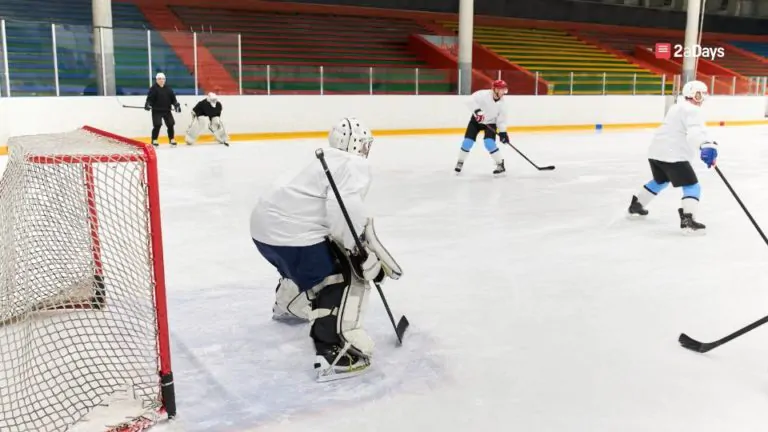Any student that decides to move to a different country for college faces the challenge of adapting to a different environment, culture, language, and schedule to mention a few. International athletes may find this adjustment even more challenging, because all of these changes in their life affect not only in their academic performance and personal wellbeing but also in their athletic performance goals.
On top of all of these changes, international athletes may also need to consider dietary adjustments. Food is fuel for any athlete and changing the type of fuel that you give to your body may have an impact on how you feel on practices and competitions. Your body needs time to adapt to different foods. Here are a few adjustments to keep in mind if you're an international athlete looking to settle down in the U.S. to play the sport you love in college
Meal Timing
Depending on where you're from, the timing of your meals may change once you move to the states. A personal example: in my home country of Mexico, we are used to having breakfast in the morning, a strong meal around 2 p.m., and a late-night heavy dinner around 9 p.m., which is somewhat unusual in America, where both lunch and dinner come earlier in the day.
Related: The 6 Best Foods for Muscle Recovery
Different Recipes
Cooking methods and ingredients also vary by country, and for athletes, the quantity of food you eat may change when you start training at the next level. For example, if we increase our training time and intensity, we are likely to be more hungry and choose food that contains more calories (some of which are more nourishing and nutrient-dense than others). These types of changes can be a challenge for our digestive system if we're used to less food or different types of food. Consequently, if our body is not feeling good it is extremely difficult for us as athletes to get to our optimal performance in practice or competitions.
Emotions and Food
Regardless of culture, our emotions affect our food choices. For international athletes, moving away from home is not easy and homesickness can compound the emotional appeal of food because we may feel more sad and long for a taste of home. Added factors like anxiety, stress, changes in sleeping habits, and the adaptation to a new academic style are also factors that affect what we put into our mouth. Food makes us feel good the moment we eat it so that´s how many international athletes release these emotions, which can create a rough cycle: they are missing home, they eat something delicious, and they feel great again, they are tired because of no sleep, they look for caloric meals to wake up, they are studying or socializing at night they get a dorm snack to stay awake, and they repeat the cycle once they start to feel lonely again.
Related: Cooking with the Crew: 12 Options for Post-Workout Snacks
Food Quality
Usually the foods we decide to eat when we experience negative (or positive!) emotions contain a lot of sugar or something fried with a lot of fat, because our subconscious thinks that we need the calories and the sugar to feel better. We need to be aware that these types of food will make us feel good for a short period of time and that a healthy meal that includes proteins, some carbs, vegetables and good fats will make our body feel better, perform better and recover faster.
The Good News…
In my experience as a Mexican swimmer studying in Rollins College, it has been hard for me to adapt my body to new types of food and schedules in my daily routine. In Mexico, food was made in my house, prepared without fats, and I was used to eating just what my body needed so balancing my new student athlete life with a healthy diet has been tough…but it's possible! After a year in college I can say I have learned to take care of my body and choose the food that will make me feel good and have a better athletic performance. Every cafeteria has so many options, you just have to be aware of what your body truly needs.
Related: Rate your Coaches, Facilities, and Campus Visits
Here are some tips that have helped me:
- Plan your meals: create a schedule, make the time to select what you want and need to eat. Also, eating at the same time is a great way to help your body adapt to different foods faster.
- Try to eat food that you know makes you feel good. A good way to keep track of this is remember what you eat the day that you felt amazing in practice and try to base your diet with that.
- Try to avoid fried food like french fries, fried chicken or burgers.
- Avoid excess consumption of sugar, but indulge in one or two cheat meals that include dessert during the week to reduce your cravings.
- Eat with plain water and avoid sodas
- Detect your emotions and ask for help to deal with them correctly, rather than finding solace in food
- Eat healthy snacks
- Listen to your body
As international students adapting to a different diet is a challenge, but eating a different type of food is also part of the experience of living in a different country. It's part of the culture and it can be fun to explore! Just make sure to listen to your body and make good decisions of what you decide to eat.
Have an idea for a story or a question you need answered? Want to set up an interview with us? Email us at [email protected]
* Originally published on July 29, 2022, by Camila Cramer







